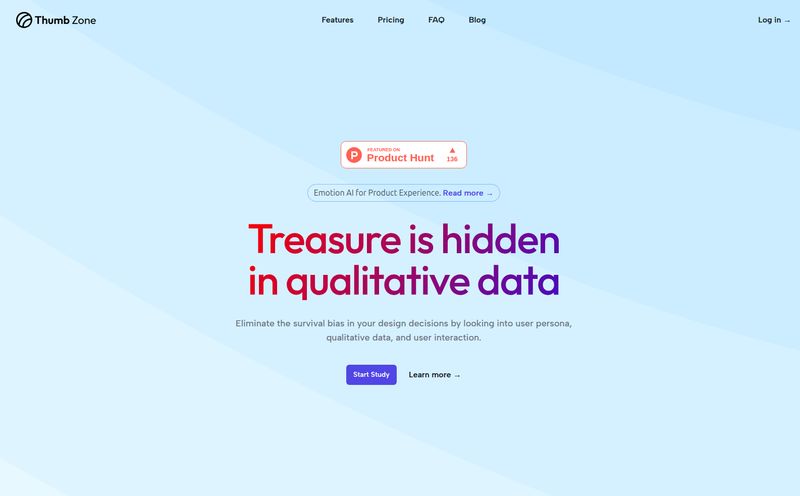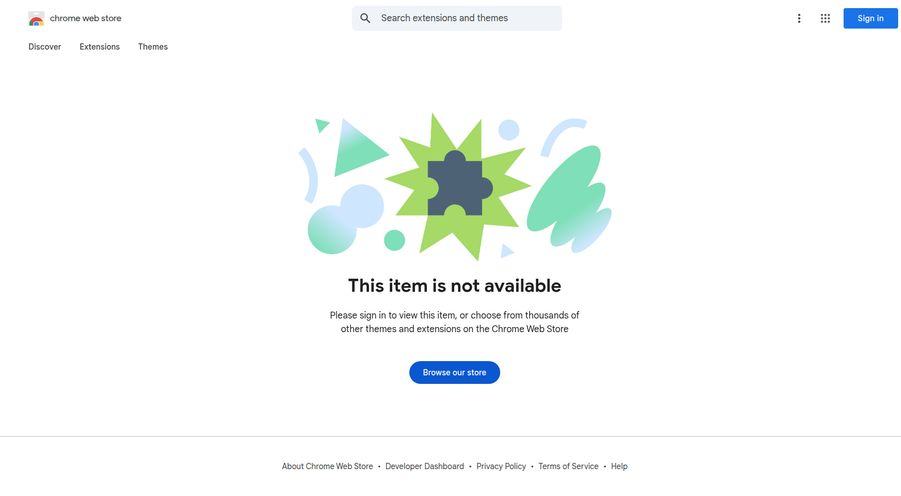As someone who’s been swimming in the deep end of the SEO and digital marketing pool for years, I’ve seen my fair share of tools. Some are game-changers, others are... well, let's just say they're 'learning experiences'. Every week, it seems like a dozen new AI-powered saviors pop up, each promising to solve all our content woes. So when I heard about Riter, an AI tool specifically for generating UX copy, my ears perked up.
UX writing is a subtle art. It’s not just about filling space; it's about guiding users, building trust, and making a digital experience feel intuitive. It can be a real grind. The idea of an AI assistant dedicated to crafting those perfect little button labels, headlines, and descriptions? Sign me up. I was genuinely excited to take this thing for a spin. And that, my friends, is where our story takes a weird turn.
So, What Is Riter Supposed To Be?
On paper, Riter sounds pretty slick. It’s pitched as an AI-powered tool, running on the back of the mighty ChatGPT, designed to whip up copy for those tricky micro-interactions. We're talking:
- UX Copy: The text for buttons, menus, error messages, and tooltips. The tiny words that have a huge impact.
- Headlines: Grabbing attention and setting the tone for a page or section.
- Design Descriptions: Helping designers and stakeholders get on the same page about the purpose and feel of a design element.
Basically, it’s meant to be a creative partner for designers, developers, and writers who are tired of staring at a blank button, thinking, “What’s a more inspiring word than ‘Submit’?” We’ve all been there. The promise is speed and relevance, powered by an engine we all know and... mostly trust.

Visit Riter
My Real-World Test Drive... Straight into a Brick Wall
Here’s the part of the review where I’d normally show you screenshots of the slick interface and talk about the user experience. But I can't. Because when I navigated to Riter’s website to sign up and start generating, I was greeted by this:
This site can’t be reached... The connection was reset.
Oof. Not a great first impression. I tried again. Cleared my cache. Tried a different browser. Nothing. A digital ghost town. It’s like showing up to a restaurant you’ve heard amazing things about, only to find the doors are locked and the windows are papered over. It's a bit of a head-scratcher. Is it a temporary glitch? Did they go out of business? Is the tool so exclusive it has a digital bouncer? Who knows!
This experience, while frustrating, is actually a pretty important lesson in the current AI gold rush. A lot of new tools are popping up, many of which might be little more than a thin wrapper around an OpenAI API key with a nice landing page. Sometimes, they aren't built to last. I’m not saying that's definitely the case with Riter, but a non-functional website is a massive red flag.
Let's Judge the Idea, Not the (Missing) Execution
Okay, so I couldn't actually use the tool. But we can still analyze the concept. Assuming Riter rises from the digital ashes, what are the potential benefits?
The Promise of Instant Inspiration
The biggest selling point is speed. When you're on a deadline, you don’t have time to wordsmith the perfect three-word headline for an hour. Getting a handful of AI-generated options in seconds can be the jolt of creativity you need to get unstuck. Even if the suggestions aren't perfect, they're a starting point. A launchpad for your own ideas. In my experience, breaking that initial inertia is half the battle.
A Focus on Simplicity
The info I could find suggests Riter has an easy-to-use interface. This is crucial. A tool for writers and designers shouldn't require an engineering degree to operate. If it's as simple as typing a prompt and getting results, it removes a major barrier to entry, especially for design-focused folks who might not be full-time copywriters.
Leaning on the Power of ChatGPT
The fact that it's "powered by ChatGPT" is both a pro and... well, a point of discussion. The pro is that we have a baseline for the quality. It's not some unknown, janky language model. It's capable of producing coherent, contextually aware text. This gives it a leg up over bespoke models that might not have the same level of training.
The Red Flags and Question Marks
Even without the website being down, there are a few things that give me pause. Based on the information available, a couple of cons stand out.
The JavaScript Dependency
First, it apparently requires JavaScript to run. Now, in 2024, this is hardly a shocker—what doesn't require JavaScript? But for purists, or for use in highly restrictive corporate environments, or for those focused on absolute peak accessibility, it’s something to note. It's a minor point for most, but not for everyone.
The Great Quality Unknown
This is the big one. The provided info itself states there's "limited information available about the quality of generated content." This is a refreshingly honest, if slightly worrying, admission. AI is great, but it's not a magic wand. It can be generic, it can miss nuance, and it definitely lacks the lived experience that informs truly great UX copy. How good is Riter at understanding the subtle emotional tone needed for an error message versus a success confirmation? Without being able to test it, we're left guessing. This is where a human touch remains irreplaceable, at least for the final polish.
The Million-Dollar Question: What's the Price?
Here's another mystery. There's no public pricing information. Zero. Zilch. Nada. Is it free? Is it a freemium model? Is there a monthly subscription? The lack of transparency on cost, combined with the inaccessible website, makes it impossible to evaluate its value proposition. Is it a free beta tool from a developer's side project, or a premium product with a server issue? Your guess is as good as mine.
So, Should You Keep an Eye on Riter?
Look, I want to like Riter. I really do. The world needs more specialized, niche AI tools that solve a specific problem well. The focus on UX copy is smart and much-needed. But an idea is only as good as its execution, and right now, the execution seems to be nonexistent.
My verdict? Riter is a Schrödinger's Cat of a tool. It's both potentially brilliant and completely useless until we can actually open the box (or, you know, load the website). For now, I'd file it under "Interesting idea, check back later." Don't bank your next big project on it. Instead, stick with proven methods or more established AI writing assistants like Copy.ai or Jasper, even if they aren't as specialized.
If Riter ever comes back online and proves to be a stable, high-quality tool, I'll be the first to write a glowing follow-up. Until then, it serves as a cautionary tale: always vet the tools you're considering, because some of them might just be ghosts in the machine.
Frequently Asked Questions about Riter
What is Riter AI?
Riter is intended to be an AI-powered copywriting tool that specializes in generating short-form text for user experience (UX) design. This includes things like headlines, button text, error messages, and descriptions for design elements, all supposedly generated using OpenAI's ChatGPT technology.
Who is Riter for?
The target audience appears to be UX/UI designers, product managers, developers, and copywriters who need to quickly generate copy options to improve the user flow and clarity of websites and applications. It aims to speed up the workflow for anyone involved in the design process.
Why can't I access the Riter website?
As of this writing, the website is inaccessible, returning a connection error. This could be due to temporary server maintenance, a technical fault, or it could mean the service is no longer active. There is no official status page, so it's impossible to know for sure.
Is Riter free?
There is no publicly available information regarding Riter's pricing. It's unclear if it was intended to be a free tool, a subscription service, or follow a pay-per-use model. This lack of transparency is a significant issue.
Are there good alternatives to Riter for UX writing?
Yes. While Riter is specialized, many general AI writing assistants can be prompted effectively for UX copy. Tools like Jasper, Copy.ai, and even the free version of ChatGPT can be excellent resources. You can also look at more design-integrated tools like Frontitude which helps manage copy within design files like Figma.
Is AI-generated UX copy reliable?
It can be a fantastic starting point for brainstorming and overcoming writer's block. However, it's rarely a finished product. Great UX copy requires a deep understanding of the user's emotional state and context, which AI struggles with. Always have a human writer or designer review and refine AI-generated copy before it goes live.
A Final Thought
The tale of Riter is a perfect snapshot of the current tech scene. So much promise, so much excitement, but sometimes the fundamentals—like having a working website—get lost in the shuffle. Here’s hoping they get things sorted out, because the idea is a good one. But for now, I'll be writing my own button copy, thank you very much.
Reference and Sources
- Copy.ai - AI Writing Assistant
- Jasper - AI Content Platform
- OpenAI's ChatGPT - The Language Model Powering Many AI Tools
- Frontitude - UX Copy Management Plugin for Figma



